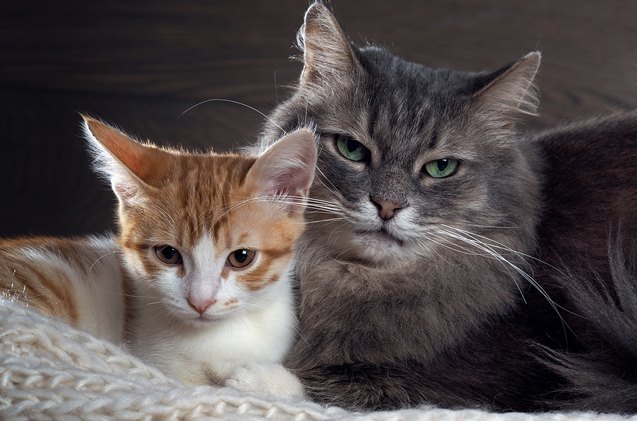What You Need to Know About Feline Anemia

Anemia in cats occurs when there’s a reduction in the number of circulating hemoglobin, red blood cells, or both. Rather than being a specific disease, anemia is the result of other medical conditions.
Severe anemia will need to be treated by a veterinarian immediately, as it is life threatening. But if your cat is diagnosed with mild anemia, it can be managed with the proper treatment and care.
The first step in keeping your cat healthy is understanding what feline anemia is caused by, as well as its symptoms. In this way, you can get your cat the right treatment as soon as possible.
Related: What Is Toxoplasmosis?
The Causes of Feline Anemia
There are several diseases that can result in anemia, and they can be grouped into those that cause hemolysis (breakdown and destruction of red blood cells), those that cause blood loss, and those that reduce the production of red blood cells.
More specifically, some of the many causes of anemia are:
- Severe flea infestation, particularly in kittens
- Cancer
- Kidney disease
- Viruses, such as FeLV or FIV
- Parasitic infection
- Immune-mediated disease
- Exposure to toxins
The Symptoms of Feline Anemia
Being aware of the potential causes of feline anemia is one thing, but knowing what the symptoms of anemia are is the best way to catch it as early as possible.
The most common symptom of anemia is the development of pale gums. If you were to check your cat’s gums, you would notice that the healthy pink color is no longer there and that the gums range in color from white to pale pink.
Another common symptom of an anemic cat is lethargy. Your kitty may have low amounts of energy and stamina, and may appear listless and also get tired more easily than usual. Your cat may also have a decreased appetite.
Related: What You Don’t Know About Ringworm in Cats
Treatment Options
If the symptoms above are present, your cat’s vet will perform tests that may include blood tests, urinalysis, imaging, tests for parasites and bacteria, biopsy, and tests for viruses. The results of these tests, along with a physical examination, will be used to determine if anemia is to blame for your kitty’s symptoms. And, based upon the results, your vet will then come up with the appropriate treatment plan.
If the anemia is severe, to the point that it is threatening your cat’s life, your vet will likely order a blood transfusion so that the body can be stabilized until your vet can figure out exactly what is causing the anemia. If treatments have already been administered, the blood transfusion will also provide stability until those treatments start taking effect.
After the underlying cause of your cat’s anemia has been determined, your vet will prescribe the appropriate remedies. These could range from corticosteroids and de-worming medications, to other medications and surgery.
Prognosis
In terms of prognosis, if your kitty has suffered from severe trauma, has cancer or an autoimmune disease, or is anemic due to exposure to toxins, the prognosis may be less favorable. On the other hand, if your cat is diagnosed early enough and is in relatively good health despite the anemia, the prognosis may be more favorable.
Preventing Anemia
There are some steps that you can take to reduce the risk of your cat becoming anemic. For example, to prevent viruses like FIV and FeLV, you should keep your cat indoors, and have all of the kitties in your family tested for these viruses. Keeping your pet safely inside your home will also reduce the risk of her contracting parasites and fleas that could lead to anemia. And regular checkups with your vet will help you catch early signs of anemia before the condition progresses.
As an informed pet parent, you can recognize the symptoms of anemia sooner rather than later, and you’ll be able to get your cat the treatment that she needs without wasting any time.

Lisa Selvaggio is a freelance writer and editor, and our resident cats-pert, with certifications in pet nutrition and pet first aid. She enjoys producing content that helps people understand animals better so they can give their pets a safe and happy home.
More by Lisa Selvaggio























